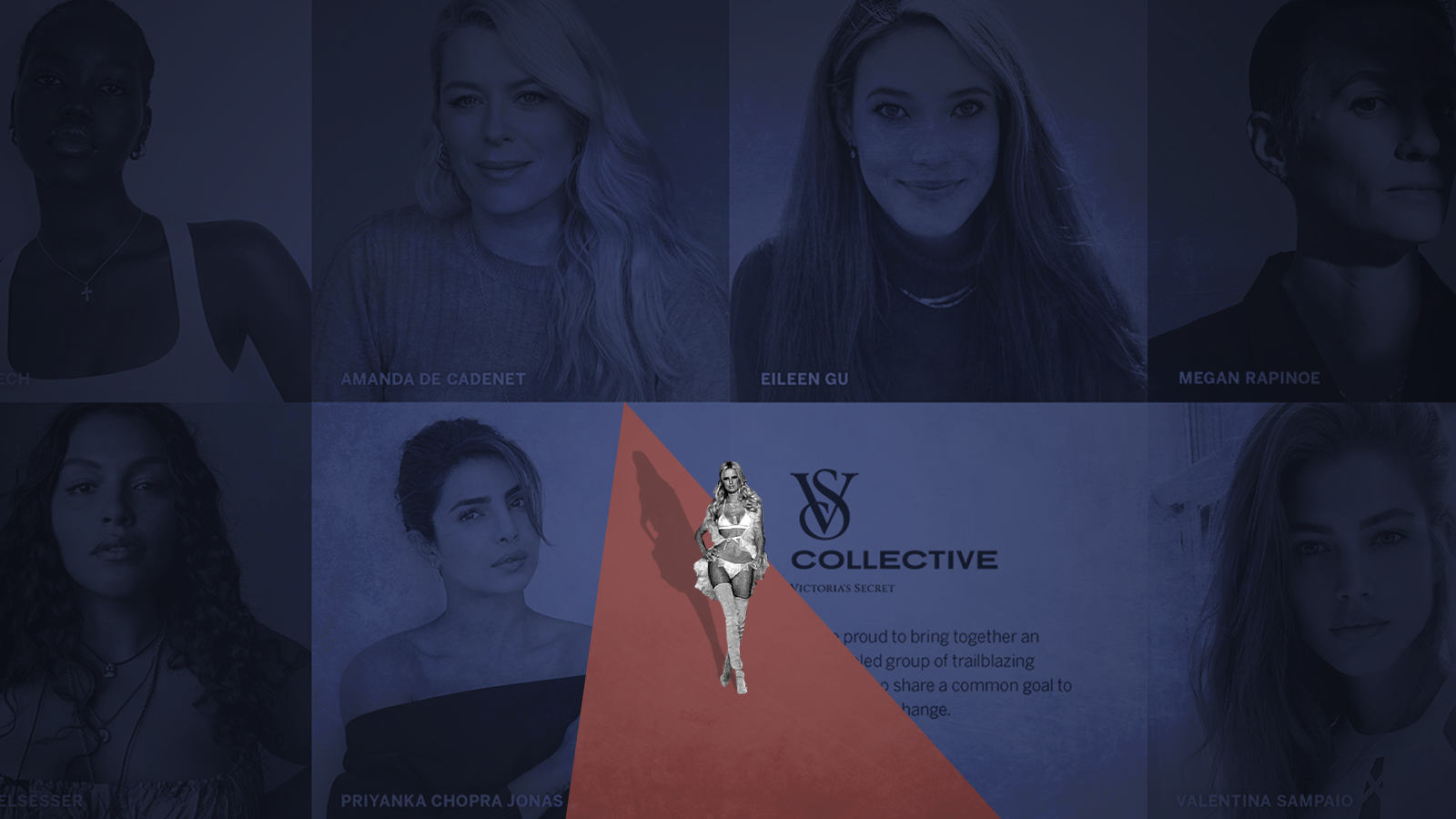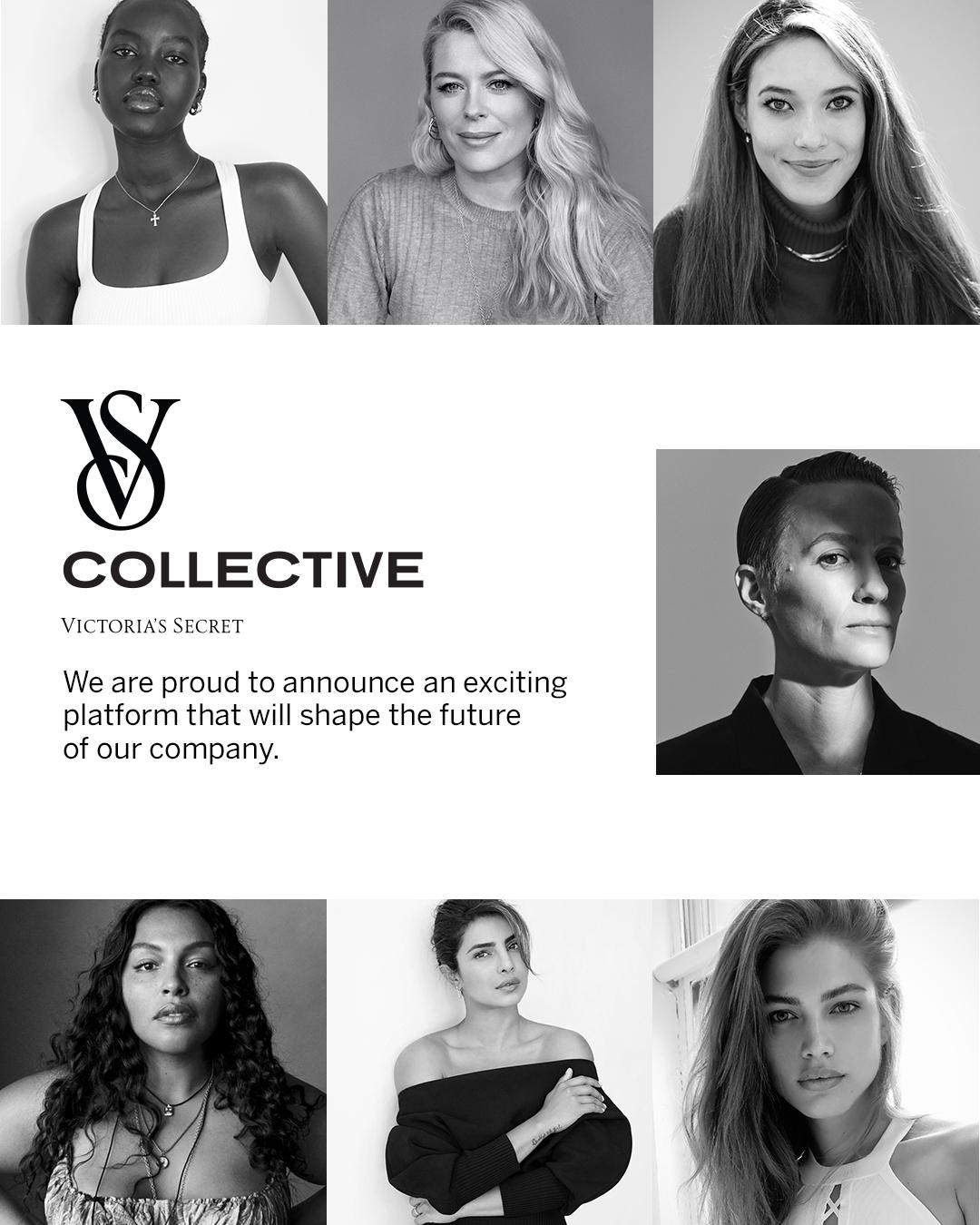The Victoria's Secret fantasy I grew up with is gone. Is the new one any better?
Why the company's pivot to feminism rings hollow


A free daily email with the biggest news stories of the day – and the best features from TheWeek.com
You are now subscribed
Your newsletter sign-up was successful
My hometown mall's Victoria's Secret was located on the second floor, across the atrium from the Claire's where I got my ears pierced. As a preteen, it stood out during family shopping trips as the forbidden pink-and-black temple to my idea of womanhood — the place where my older friends secretly shopped for their push-up bras and thongs, and where posters of half-nude Angels winkingly invited customers to browse The Semi Annual Sale. Later, I'd graduate to being a devoted customer myself, pawing through underwear in the buy-two-get-one-free drawers, while an ill-fated fitting before prom placed me in the wrong bra size for years.
I tell you all this because I wholeheartedly bought the pitch. Not quite enough to ever sign up for the VS Credit Card the clerks were always trying to push on customers or to purchase any of the cloying body mists with names like "Love Spell" and "Pure Seduction" that hung in a fog over the check-out line, but certainly to the point that I thought if I could just find the right Bombshell Add-2-Cups, then I might look as good as the winged models with the "perfect bodies" on the TVs behind the counter.
I eventually grew up (and blessedly got re-fitted along the way), but Victoria's Secret has stubbornly stayed the same. And though the company this week announced a major pivot away from some of its most iconic and retrograde marketing, don't be fooled. The company is still selling a fantasy — just one belatedly updated for the times.
The Week
Escape your echo chamber. Get the facts behind the news, plus analysis from multiple perspectives.

Sign up for The Week's Free Newsletters
From our morning news briefing to a weekly Good News Newsletter, get the best of The Week delivered directly to your inbox.
From our morning news briefing to a weekly Good News Newsletter, get the best of The Week delivered directly to your inbox.
Victoria's Secret has had its chances to catch up before, like in the early 2010s, when "empowering" feminist messaging started to take over in fashion and beauty marketing. The company, though, seemed almost to relish its antiquated, male gaze-y approach to selling women's undergarments (after all, as Justin Timberlake famously informed audiences in The Social Network, the store was started by a man who was too embarrassed to shop for lingerie for his wife in a regular department store). But the writing was on the wall even then: "American women make most household purchasing decisions, control trillions in consumer spending, and they don't like it when a company defines beauty narrowly for them," Mashable warned in 2017, noting that "now is the worst time for companies to patronize women or produce tone-deaf ads that reinforce cliches or stereotypes about gender roles and identity." Other underwear brands began to realize they could sell their bras to women by promoting themselves as specifically not being Victoria's Secret.
By 2018, Victoria's Secret — "still banking on bombshells" — was openly struggling. "Things are going from bad to worse at Victoria's Secret," Business Insider reported, citing months of declining sales. That year, the company announced it would be closing 30 stores across the country; in 2019, the number rose to 53. Last year, Victoria's Secret closed 241 stores mid-pandemic, and it's expected to shutter another 50 this year.
Then this week, the store announced its intention to do a radical about-face and become an "advocate" for female empowerment. Victoria's Secret will retire its iconic supermodel Angels in favor of creating a seven-woman group called the VS Collective, who will "alternately advise the brand, appear in ads, and promote Victoria's Secret on Instagram," The New York Times reports. As the company's new chief executive (who, notably, is still a man) further told the paper, "When the world was changing, we were too slow to respond. We needed to stop being about what men want and to be about what women want."
Nice words, certainly — also extremely marketable ones. The company's pivot is a smart business decision tweaked to fit with what female customers are receptive to in 2021, a strategy that's been transparent since The Guardian observed in 2015 that "the advertising industry, once bent on selling us sex is now selling us its disgust with sexism."
A free daily email with the biggest news stories of the day – and the best features from TheWeek.com
The women who've been invited to help shape the future of Victoria's Secret do, at least, seem to have a genuine desire to change the company from within. But though the initial batch of VS Collective members includes impressive activists and athletes, many of the women are still safely within the bounds of what might be considered commercially attractive in 2021. While Priyanka Chopra Jonas, for example, does admirable entrepreneurial work, she's also a former Miss World pageant winner. Megan Rapinoe has made heroic strides in the fight for equal pay and LGBTQIA+ representation, but, by the nature of her work as a professional soccer player, she also has an incredible athletic build. Even the VS Collective's inclusivity advocate, Paloma Elsesser, who The New York Times describes as "the rare size 14 woman on the cover of Vogue," is smaller than the average American woman today. (Victoria's Secret's first openly transgender model Valentina Sampaio, South Sudanese refugee Adut Akech, GirlGaze founder Amanda de Cadenet, and freestyle skier Eileen Gu round out the rest of the group).

Make no mistake, though: if Victoria's Secret could still get by on selling us the idea that its thongs will magically turn women into "bombshells," it certainly would. But our understanding of "sexy" has evolved since Tyra Banks wore the Fantasy Bra, and Victoria's Secret is, out of desperate necessity, now in pursuit. In truth, the company's rebranding represents the bare minimum it takes to even be relevant in 2021. "When it comes to lingerie, women can now look to other women designers [like Rihanna's Savage x Fenty and ThirdLove] rather than settle for styles at Victoria's Secret," Jezebel pointed out … back in 2018.
Further, Victoria's Secret's new campaign, by its very essence, commodifies female empowerment. Even if the bras are now worn by an Olympian, the overarching goal is still to convince you that you need fancy underwear and a new credit card. The myth, though, is no longer wear our lingerie and men will want you, but wear our lingerie and you'll feel great about yourself. An overdue acknowledgment of women as people rather than mere objects of desire, yes — but still, it hawks what amounts to a manufactured idea of what your life could be if you buy new clothes.
Don't get me wrong, I much rather I'd internalized role models like Rapinoe over the caramel-haired size-0 Angels that winked their promises to my blushing preteen self in the mall. But a fantasy is still a fantasy, even if it's more palatable to our modern ideas about femininity and sexuality. The game has changed somewhat, but the parameters of women's aspirational advertising remain firmly in place.
Jeva Lange was the executive editor at TheWeek.com. She formerly served as The Week's deputy editor and culture critic. She is also a contributor to Screen Slate, and her writing has appeared in The New York Daily News, The Awl, Vice, and Gothamist, among other publications. Jeva lives in New York City. Follow her on Twitter.
-
 Political cartoons for February 15
Political cartoons for February 15Cartoons Sunday's political cartoons include political ventriloquism, Europe in the middle, and more
-
 The broken water companies failing England and Wales
The broken water companies failing England and WalesExplainer With rising bills, deteriorating river health and a lack of investment, regulators face an uphill battle to stabilise the industry
-
 A thrilling foodie city in northern Japan
A thrilling foodie city in northern JapanThe Week Recommends The food scene here is ‘unspoilt’ and ‘fun’
